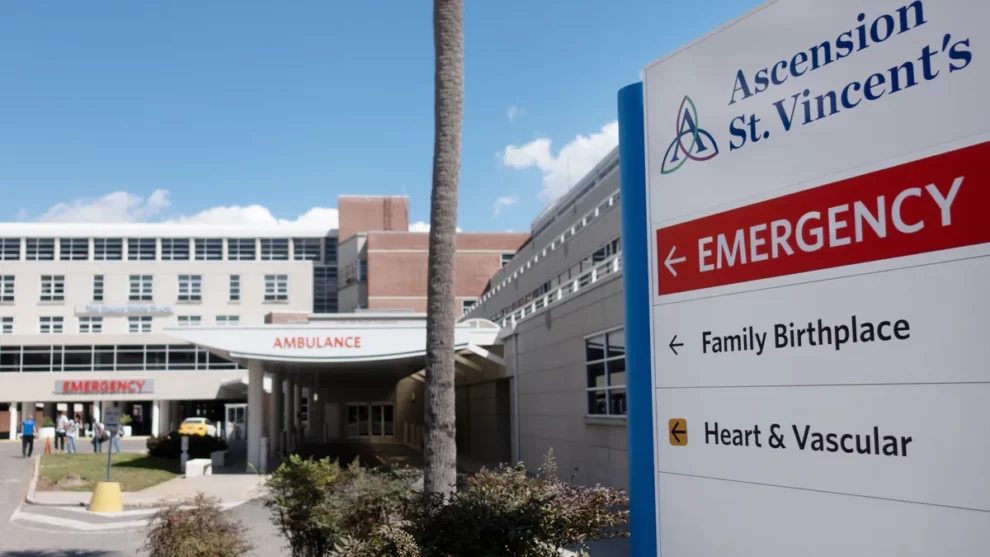Major healthcare provider Ascension has disclosed that approximately 5.6 million individuals had their sensitive medical information compromised during a significant ransomware attack that occurred in May of this year. The revelation, made in a formal notification to Maine’s state attorney general on Friday, marks one of the largest healthcare data breaches of 2024.
The cybersecurity incident, which unfolded over May 7 and 8, resulted in unauthorized access to an extensive array of confidential patient information, including detailed medical records, laboratory test results, and insurance documentation. While the full scope of the compromised data remains undisclosed, the breach has raised serious concerns about patient privacy and healthcare system security.
Ascension, established as a Catholic nonprofit organization in 1999, operates one of the nation’s largest healthcare networks, encompassing 140 hospitals and employing approximately 134,000 associates. The organization’s extensive reach, serving 19 states and the District of Columbia, with 35,000 affiliated providers, amplifies the breach’s potential impact on the American healthcare landscape.
The attack caused substantial disruption to Ascension’s clinical operations, highlighting the vulnerable nature of healthcare infrastructure to cyber threats. Ransomware attacks, which involve malicious actors encrypting vital computer systems and demanding payment for their release, have become increasingly sophisticated and targeted, with healthcare providers representing particularly attractive targets due to their critical operations and sensitive data holdings.
This incident occurs against a backdrop of escalating cyber threats to the healthcare sector. Earlier this year, UnitedHealth experienced an even more extensive breach affecting 100 million individuals, underscoring the healthcare industry’s position as a prime target for cybercriminals. The sensitive nature of medical data, combined with the critical importance of maintaining operational continuity in healthcare settings, creates a perfect storm for malicious actors seeking maximum leverage for their extortion attempts.
In their communication with the Maine attorney general, Ascension’s legal representatives attributed the breach to an unidentified “cybercriminal.” The organization has not provided specific details about the perpetrator or whether any ransom demands were made or met. This approach aligns with a common industry practice of limiting public disclosure about cybercrime negotiations, though it raises questions about transparency and accountability in protecting patient data.
The healthcare sector’s vulnerability to such attacks stems from several factors, including the necessity of maintaining continuous operations, the interconnected nature of modern medical systems, and the high value of medical data on illegal markets. Cybercriminals often employ a dual-threat strategy in ransomware attacks, not only encrypting systems but also stealing data to create additional pressure for payment.
This incident highlights the ongoing challenges healthcare organizations face in balancing operational efficiency with cybersecurity measures. The scale of Ascension’s network, while beneficial for healthcare delivery, presents a vast attack surface for potential cybercriminals. Modern healthcare providers must maintain complex digital systems for everything from patient records to diagnostic equipment, creating numerous potential vulnerabilities that sophisticated attackers can exploit.
The breach raises significant questions about the adequacy of current cybersecurity measures in healthcare settings and the industry’s preparedness for increasingly sophisticated cyber threats. As healthcare providers continue to digitize their operations and expand their networks, the potential impact of such security breaches grows correspondingly larger.
The incident also underscores the critical importance of robust data protection measures and incident response planning in healthcare settings. With medical information being particularly sensitive and protected under various regulations, including HIPAA, healthcare providers face unique challenges in securing patient data while maintaining efficient operations.
As investigations continue and affected individuals are notified, this breach serves as a stark reminder of the ongoing cybersecurity challenges facing the healthcare sector and the urgent need for enhanced security measures to protect patient information in an increasingly digital healthcare environment.
















Add Comment